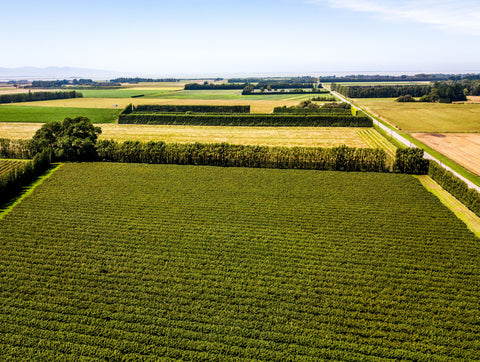AS you may have noticed, there’s an obvious New Zealand component to the CurraNZ brand, even though it started out life in the UK.
As well as having a Kiwi founder, it’s fair to say the heart of CurraNZ and its uniqueness is intricately connected to our small Southern Hemisphere nation.
We place a great deal of pride in the heavyweight nutritional value of the berries that go into our product - and the reason for their superiority over blackcurrants grown anywhere else may surprise you.
It's due to the strength of NZ's sunlight which is a result of the lack of ozone that affects the Southern Hemisphere.
With NZ’s summer UV burning strength almost twice* that of the UK, the secret to our blackcurrants lies in the berry's clever adaptation to the searingly hot Kiwi summer sun.
Just over a decade ago, scientists discovered that they were producing surprisingly higher concentrations of ‘sunscreen’ in response to the strong ultra-violet light.
The dark pigments responsible for their protecting the fruit are the bioactives - or anthocycanins - that give the berries their ‘superfood’ qualities.

Compared to blackcurrants grown in Britain, New Zealand-grown berries contain 1.5 more anthocyanins.
Add to that, the cold winters (absolutely crucial for blackcurrants) and perfect growing conditions in the vast expanses of the South Island's Canterbury plains provide the golden recipe to grow the world’s best blackcurrants.
For all its ‘smallness’, New Zealand is famous for many things, the All Blacks being the most obvious, but the blackcurrants also deserve similar hero status. If you're a regular customer harnessing its broad-spectrum health and fitness benefits, you'll no doubt agree.
*The sun’s burning strength is measured by the UV index. The highest possible UV index is 20, usually achieved in equatorial regions, and any reading higher than ten is considered extreme.
The UV index rarely reaches eight in the UK, but frequently hits 14 in New Zealand.

